Biden admin asks SCOTUS to take up case threatening ACA preventative care coverage
The case filed by religious employers opposed to coverage of contraceptives and PrEP has expanded to threaten care for "millions." Also: Election updates.
The Biden administration on Thursday asked the U.S. Supreme Court to protect preventative care services offered under the Affordable Care Act in a case that could affect access to cancer screenings and HIV prevention drugs, among many other services that have been available to patients without charge under the ACA.
In the petition for a writ of certiorari, lawyers from the Justice Department and Department of Health and Human Services asked the justices to take the case to reverse a decision from earlier this year from the U.S. Court of Appeals for the Fifth Circuit that would lead to end end of the coverage. The appeals court held that the members of the entity whose recommendations led to the coverage requirements were unconstitutionally appointed in violation of the Appointments Clause.
“The court’s holding jeopardizes healthcare protections that have been in place for 14 years and that millions of Americans currently enjoy,” the Biden administration lawyers wrote in Thursday’s filing.
The case involves the U.S. Preventive Services Task Force, a longstanding entity established during the Reagan administration. Under the ACA, certain preventative care recommended by the Task Force (its “A” and “B,” or high-level, recommendations) must be covered by health insurance plans with no co-pay and not subject to any deductible or other cost-sharing measure.
Religious employers who objected to supporting coverage of contraceptive care and pre-exposure prophylaxis (PrEP), the drug that prevents transmission of HIV to a person taking it, brought the challenge during the Trump administration, but the Biden administration took over before there were any rulings in the case.
In its June ruling in the case, in addition to holding that the Task Force members’ appointments were unconstitutional, the Fifth Circuit also refused to sever the part of the law that led to its Appointments Clause ruling.
DOJ is now asking the Supreme Court to take up the case and hold that the Fifth Circuit was wrong on one or both of its conclusions about the Task Force so that the coverage requirements will continue to be required.
Due to the timing of Thursday’s filing, however, the Supreme Court won’t even be considering the petition before the fall presidential election, so it is almost certain that the future of this case is dependent on the outcome of that race.
This is, in other words, likely yet another contingent case.
Going in depth
As Judge Don Willett, a Trump appointee, noted in his opinion for the Fifth Circuit, the lawsuit was explicitly based, in part, on opposition from the religious employers to gay people being gay.
Jonathan Mitchell, the former solicitor general in Texas who was behind Texas’s S.B. 8 vigilante abortion ban and represented Donald Trump at the U.S. Supreme Court in his Fourteenth Amendment insurrection clause case, is representing the religious employers in this case.
After U.S. District Judge Reed O’Connor, a far-right George W. Bush appointee, ruled in September 2022 that the Task Force, which recommended PrEP coverage, was unconstitutionally appointed, he followed that up in March 2023 by finding that the remedy was vacating any preventative care requirements based on the task force’s recommendations nationwide. O’Connor has regularly ruled against both the ACA and LGBTQ people, so this case was a twofer for him.
Relevant here, O’Connor found that, under the Appointments Clause, the members of the Task Force are principal officers, which would mean that they would need to be nominated by the president and confirmed by the Senate. (As opposed to inferior officers, who need not be confirmed.) He further found that the portion of the law that led him to conclude the Task Force members are principal officers cannot be severed from the law.
Although the Fifth Circuit agreed with O’Connor on the Appointments Clause and severabililty rulings, it did pull back the nationwide effect of his injunction — limiting it to the parties.
That, however, doesn’t change much when it comes to enforcing the ACA’s preventative care coverage requirements if an appeals court rules that the task force is unconstitutionally appointed.
In Thursday’s petition, the Justice Department and lawyers from the Department of Health and Human Services argued that the Fifth Circuit is wrong and must be reversed on both points.
Specifically, the lawyers noted that “the court of appeals identified no case in which an official who is removable at will by a principal officer is herself a principal officer.”
The ramifications of leaving the Fifth Circuit’s decision in place, the lawyers argued, merit Supreme Court review.
A response is due in 30 days, but an extension could be sought putting off when the case gets to the justices even further.
Election updates: Nevada, Georgia, and Nebraska
On Friday morning, the U.S. Supreme Court rejected the Nevada Green Party last-ditch effort to get on the ballot there. The brief order contained no explanation of the courts decision, and there were no noted dissents.
Because of Friday’s decision, the Nevada Supreme Court’s decision from earlier this month will stand holding that the Nevada Green Party — and its presidential candidate, Jill Stein — had not “substantially” complied with the requirements to get on the ballot this fall.
This, in normal times, would have been the expected result. In that sense, Friday’s ruling is a reassuring note.
It will almost certainly not, however, be the last election law case to reach the justices.
On Friday, the Trump-praised members of the Georgia State Election Board passed rules that were harshly criticized by the attorney general’s office — led by Attorney General Christopher Carr, a Republican — as being beyond the board’s purview and contrary to law and some of which were also opposed by the nonpartisan Georgia Association of Voter Registration and Election Officials as “go[ing] against state law.” The changes, most notably relating to a hand-counting requirement that was passed 3-2, could cause election delays and are expected to be challenged.
And, finally, some Trump-aligned folks in Nebraska (and out of the state) are pushing a last-minute change to how the state allocates electoral votes. Along with Maine, the two states appoint one elector each for the winner of each congressional district and the remaining two electors to the overall winner in the state. Trump and allies tried earlier this year to get Nebraska to change to a winner-takes-all method as is used in the other 48 states, but it failed. The all-out effort by Trump’s campaign to get the change could upend the electoral map in a close election if implemented — although it looks unlikely to succeed. Any action would likely face legal challenges as well.



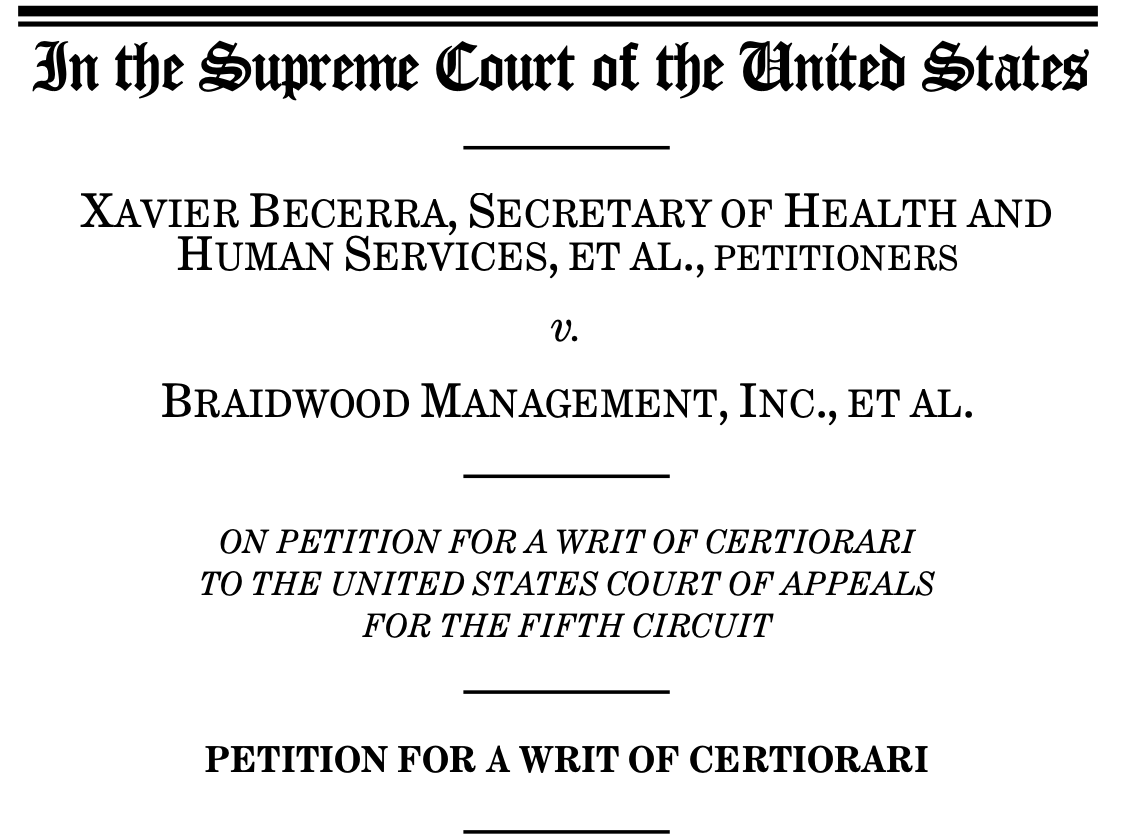
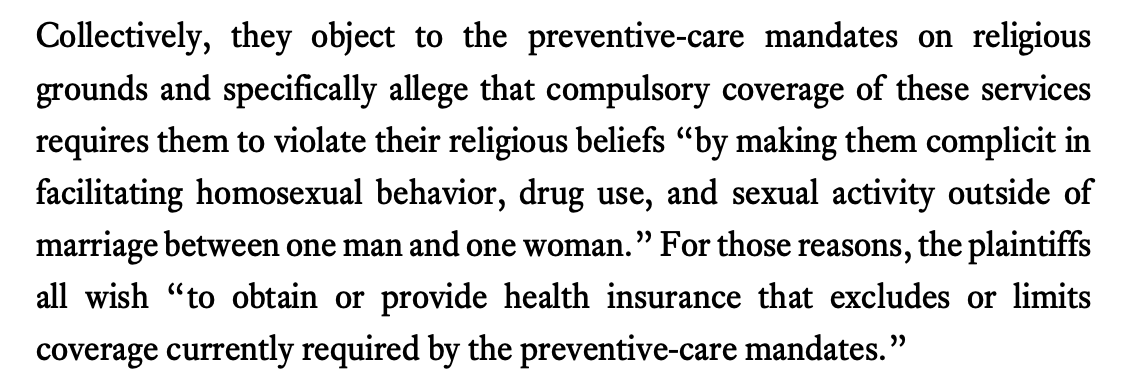
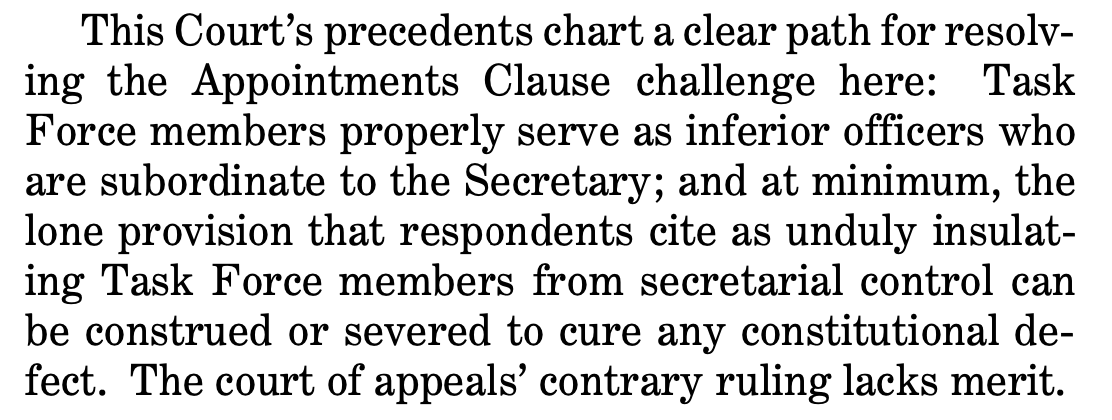
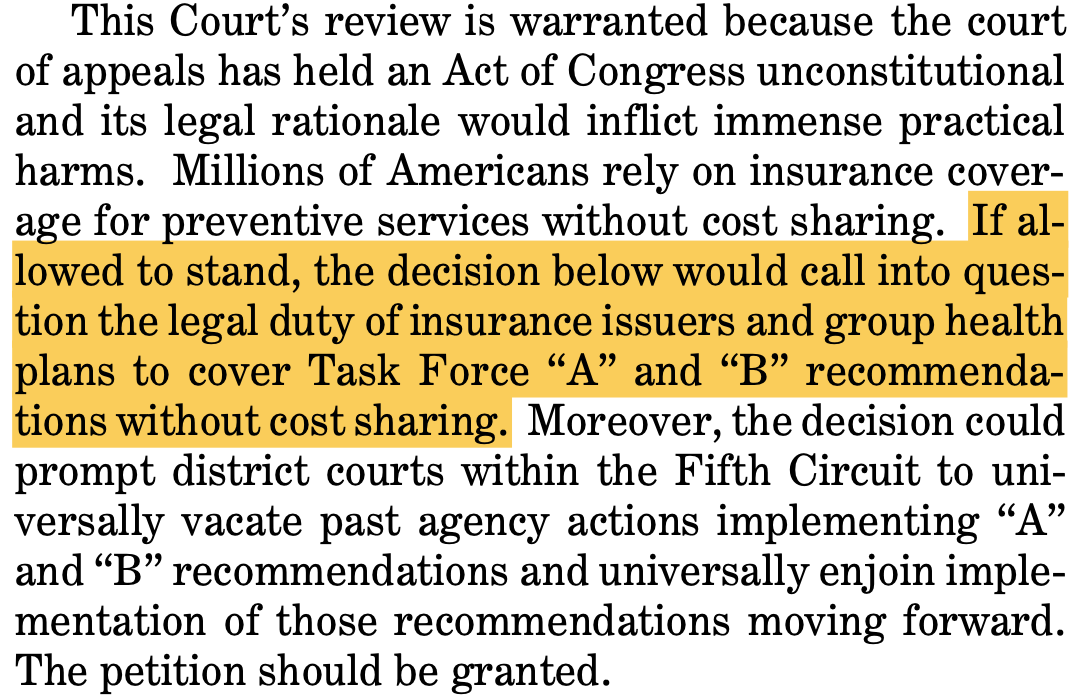
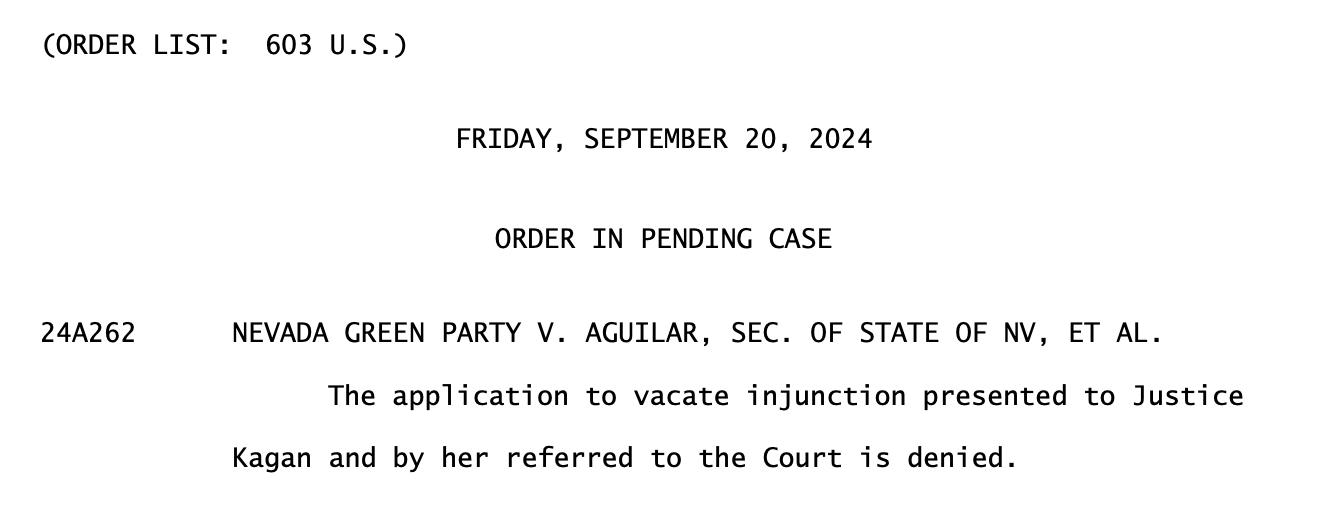
"Preventing HIV is bad! We should instead force all of humanity to be celibate! Only Christian married couples should have the privilege of sex!"
I will never understand the politics of "morality" punishing people through worsening their healthcare and making them more susceptible to disease.
The 5th Circuit needs reformation big time.